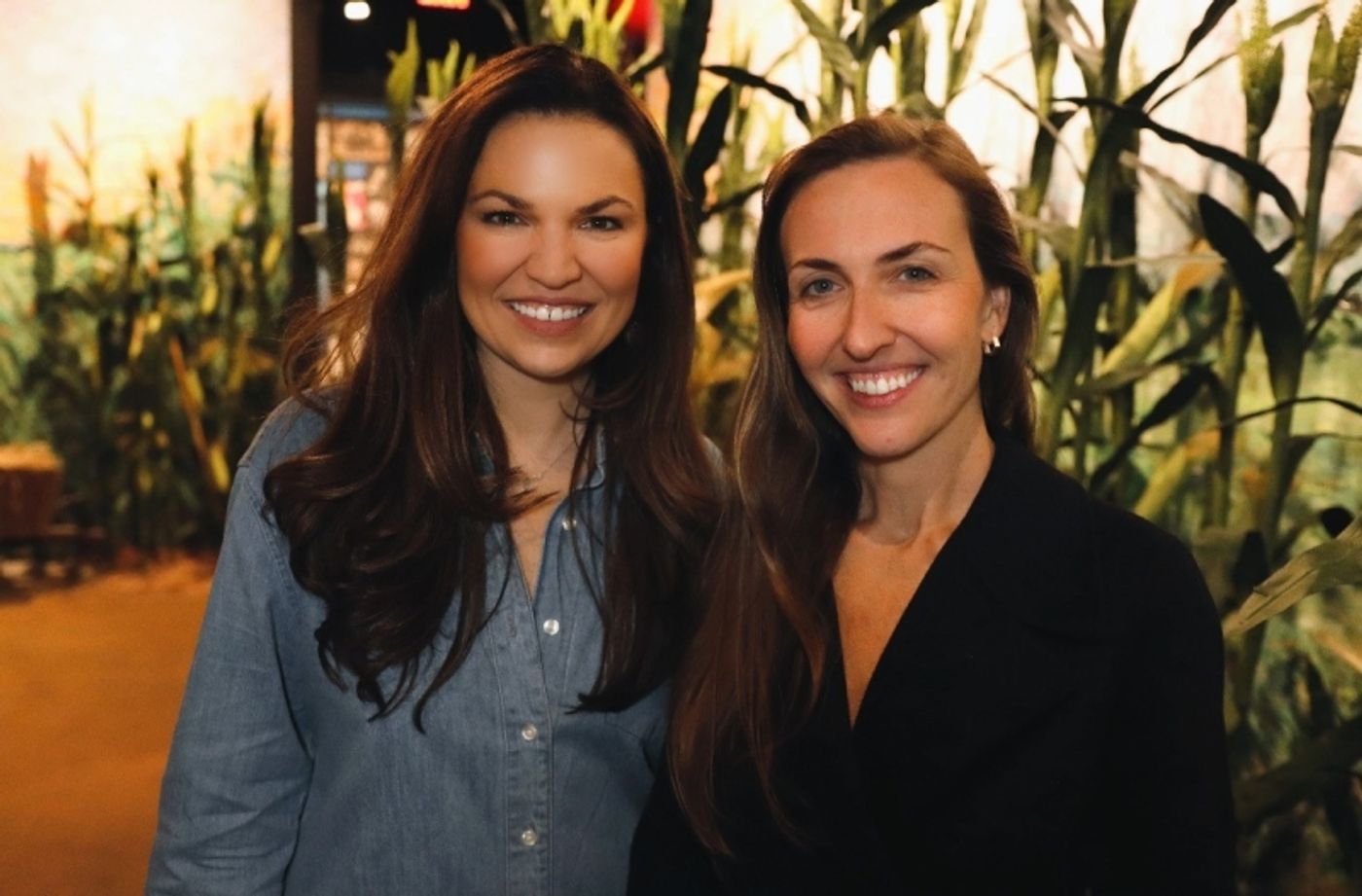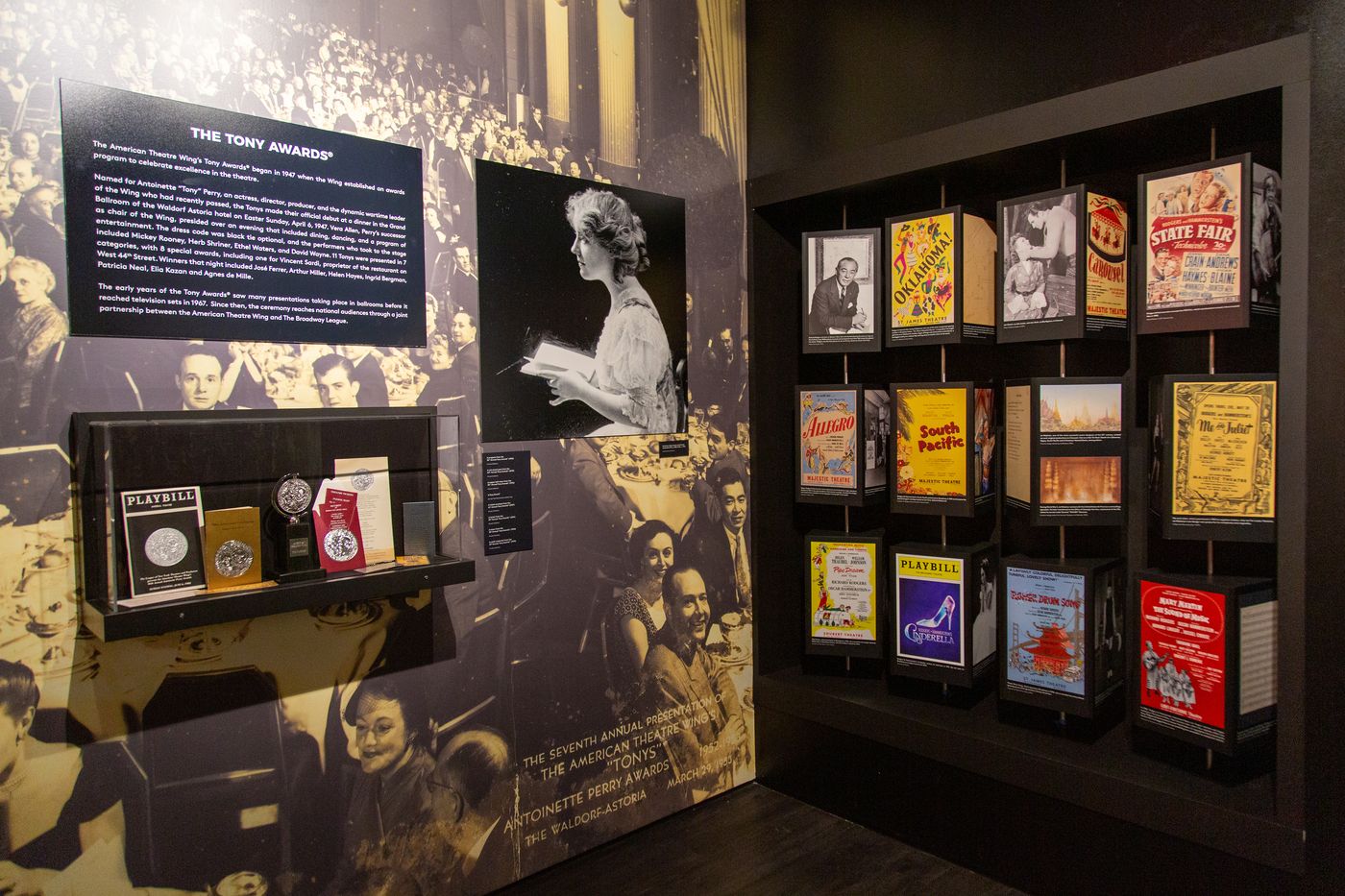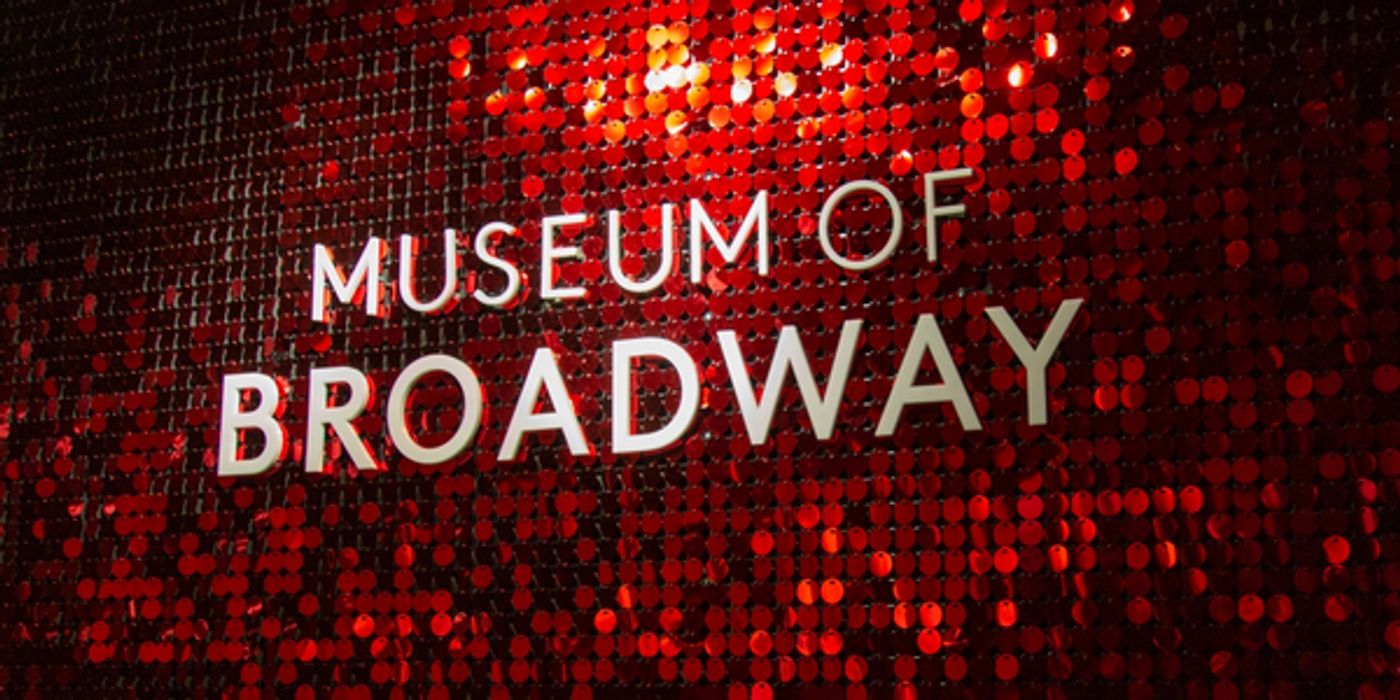Interview: Museum of Broadway Co-Founders Julie Boardman & Diane Nicoletti Are Making History
Boardman & Nicoletti discuss bringing the Museum of Broadway to life, Women's History Month highlights, and more.

The Museum of Broadway is now open to the public! Everyone from the casual theater-goer to the Broadway superfan is in for an immersive, historical, interactive experience they'll never forget! From Broadway costumes, to photos, videos, artifacts, props, and much more from The Phantom of the Opera, West Side Story, Rent, Company, Cabaret, Hamilton and others, the Museum of Broadway is giving guests the opportunity to take a look behind the curtain like never before.
The groundbreaking Museum of Broadway was co-founded by Julie Boardman and Diane Nicoletti. Julie is a two-time Tony Award-winning producer (The Inheritance and Company) and is currently a co-producer on the Broadway revival of Funny Girl and A Doll's House. Her additional Broadway credits include An American in Paris (Tony nomination), Carousel (Tony nomination), Dames at Sea, Head Over Heels, and Hughie.
Diane is a creative director, producer, entrepreneur, who founded Rubik Marketing, an experiential marketing agency, in 2009. She has worked on properties including Game of Thrones, Deadpool, Frozen, Hotel Transylvania, Dumbo, Shark Tank, The Muppets, How To Train Your Dragon, American Horror Story, Ghostbusters, HGTV and Food Network, and many more.
BroadwayWorld spoke with Julie Boardman and Diane Nicoletti about paving a path forward for women in entertainment, the process of bringing the Museum of Broadway to life, Women's History Month highlights at the museum, and more.
You are the co-founders of the Museum of Broadway. In all of Broadway's rich, long history, we've never had an entire museum dedicated to it before. Can you both tell me about the museum's inception and how you two came together to make it happen?
Diane: Well, it was Julie's idea, and we had been working together a lot in the past, we went to college together, and one day we were having wine, and she was like, "Someone was telling me there isn't a Broadway museum, what do you think about that?" And I was like, "Oh my gosh, that sounds brilliant, how has there never been a museum dedicated to Broadway?" I don't know if we took it that seriously at that particular point, we were just sort of like, "What would we do if we ended up making a Museum of Broadway?" And then it started getting a little more serious, we started whiteboarding different ideas, and then five years later we opened the museum! It was a fun journey.
Julie and I went to college at USC, we met back in 2002, we were in the same sorority together, then we both moved to New York and we each opened our agencies. Julie had a staffing agency that hired Broadway actors, and film and television actors when they were in between jobs, to do these promotional events. I had an event agency, and whenever we would do fan experiences for Game of Thrones, or Deadpool, or for Universal, I would go to Julie to hire people to staff them. So, we had a professional working relationship for probably 10 years, we were both friends and colleagues.

March is Women's History Month. How does it feel for you to know that with both of your incredible careers, and the achievement that is the museum of Broadway, that you are building a path forward for women in the theatre industry?
Julie: I think the whole thing is pretty humbling, actually, given that there was never a museum for Broadway, which has been around for so long. I think that being two women, along the way maybe some people didn't know if we could do it, and somewhere in there that helped potentially to motivate us to have to do it. It's a good idea, it should exist. And I think one other piece is within the museum, while we were whiteboarding, figuring out what is the story that we're going to tell? There is so much history and content, and you could organize it in so many different ways. So, we really wanted to fine-tune what that was that we wanted to say.
I think having been two women of a certain age, we're both millennials, we have a certain viewpoint on the world and with social issues, and I think when you walk through the museum that comes through as well. We highlight pioneers, and trailblazers, and people who pushed us forward and were overlooked at different times in history. And even when we were bringing our team together, we looked for people with similar viewpoints. Ben West, who is our resident historian and timeline curator, we all aligned very early on that that was how we wanted to walk through the timeline.
Can you tell me about some of the influential women of Broadway that are featured in the Museum of Broadway?
Julie: The museum is in three main sections, you start in present day in the playbill room, which is everything that's currently running on Broadway. When people come through the museum, maybe they only know that Wicked, Hamilton, and The Lion King are Broadway shows, they don't know that there are 41 theaters and that there is this great wealth of content, and plays, and things they might think are really interesting that they just didn't know existed.
So, you start in present day, then you go through a door that says, 'Let's Start at the Very Beginning' and you get into the map room. The theaters in New York actually started in the financial district, so how did Times Square and Broadway become what they are today? From there you start walking the timeline of Broadway from the 1700s, starting with the first documented performance in New York in 1732, and it takes you all the way through to present day. So, you'll see timeline walls that highlight different people, shows, plays, musicals, and these groundbreaking milestone moments. And then you'll get to an exhibit that's designed around some of the shows that have really pushed the form forward, brought in new audiences, really changed the landscape.
Beginning' and you get into the map room. The theaters in New York actually started in the financial district, so how did Times Square and Broadway become what they are today? From there you start walking the timeline of Broadway from the 1700s, starting with the first documented performance in New York in 1732, and it takes you all the way through to present day. So, you'll see timeline walls that highlight different people, shows, plays, musicals, and these groundbreaking milestone moments. And then you'll get to an exhibit that's designed around some of the shows that have really pushed the form forward, brought in new audiences, really changed the landscape.
Then you get to present day, you knock on a stage door, and you go backstage, into how do you make a Broadway show? What are all the different jobs you could have? A lot of people think you have to be an actor, but there are so many different ways that you could actually be part of Broadway, so we highlight a lot of that, that room is designed by David Rockwell, And then we have a special exhibit that rotates, and right now it's Hirschfeld, and then you exit back into the gift shop.
Separately, we have a rehearsal studio where we do a lot of classes, and panel discussions, or a kid's birthday party, or bat mitzvah, or cocktail party, or whatever it might be. In March we're going to be doing some women's programming with different speakers, historians, people who do various jobs in the industry talking about what they do, which is exciting. As you're walking through, especially on the timelines, you see women in history being highlighted at various points. Like Ruth Mitchell, her impact on Broadway is huge, she worked with Hal Prince for such a long time. There are a lot of people that as you're going through, maybe you didn't realize. People only know what they know, so we tried to put a lot of things front and center so that they could hopefully learn a little something and have fun.
It's so exciting to have all of that, to be able to educate people in that way. People might not know Broadway's deep history, and it's important to our culture, and it's interesting.
Julie: We have some items on loan from Florence Klotz's niece, which is pretty cool, because she was such a prolific designer, and most people don't know of her work. Or, in A Chorus Line, the lighting designer was hugely impactful to Broadway, she was a woman, it's a lot of firsts. When people did something for the first time, or pushed us forward. Also Jane Greenwood, prolific her career, and she's still actively working, and so we have her costumes, and her bible so people can flip through it and look. You see her process, with The Little Foxes, we have the costumes that Cynthia Nixon, and Laura Linney wore, and that's pretty cool.
.jpg?format=auto&width=1400)
What has been the most rewarding part for you both in seeing the Museum of Broadway come to life?
Diane: I think people's reactions, to be honest. Because when you're building something, you never know, really, what people are going to expect, experience, feel about it. Just from my own experience doing fan experiences, sometimes people loved it and I didn't expect that, other times they didn't love it as much and I thought they were going to love it. So that is really rewarding. It was a very personal project, and we are thankful that people like it, and we're grateful for that!
Julie: I think Broadway means something different to everyone. For some people they just saw a show the other day for the first time, for some people they've seen every Broadway show that they possibly could, or it falls somewhere in between. We were keeping all of those different audiences in mind as we were developing. So, there's something for the superfan, and stories they may not have known. For someone who loves the experiential, there are lots of fun, Instagram-able moments. For kids, and for foreign tourists, there is a lot of visual storytelling, so you don't have to read everything. We have an app that translates, so that people can be able to understand it in their language. And then for the avid theater-goer, they're going to love it, hopefully.
What changes would you like to see happen in the future for women in the theatre industry?

Julie: I think it's getting there, a more even playing field, for everyone, not just women. It takes time, it takes so long to even make a show, the change doesn't happen overnight, but I think people are becoming much more open and inclusive, so that's a really wonderful thing. Giving opportunity, and mentorship... when I was getting into the Broadway community, mentorship was not a focus, it's a very small community to figure out how to get into. Today it's come a long way, because people are like, "Oh, you're young, let me help you." And that wasn't the way when I joined, so I kind of made it my mission to never have that happen again, and meet as many people as I could, and become friends with everyone. And then when we were starting this project I had already laid the groundwork of the relationships so we could have a meeting with the people we needed to get in front of, to take the steps to make this all happen.
Diane: I have always been in industries where women are the leaders in some ways. A lot of times in events, and marketing, women do lead the charge a little bit. I think, for me, it was just believing in myself to be able to take the next step, and I think sometimes women- and I'm generalizing- don't necessarily have that ability to take that risk. I feel like now I see a lot more of that.
Videos


